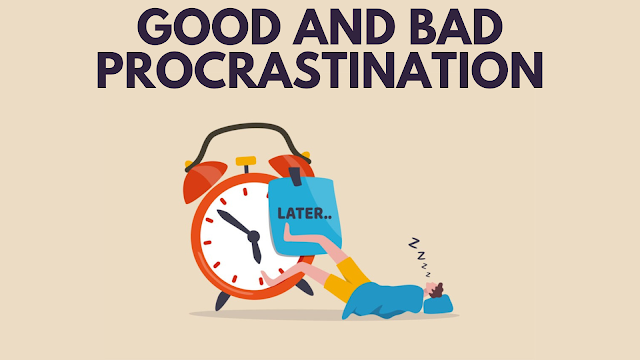Introduction: When Skincare Becomes a Practice of Self-Relationship At first glance, Skincare Journal by Linley & Miranda may appear to be a simple tracking tool—pages to note products, routines, and results. But spending time with the journal reveals that it is designed to be something far deeper. This is not merely a planner for skincare; it is a structured space for rebuilding one’s relationship with the self through consistency, patience, and awareness. In an age where skincare is often marketed as instant transformation, this journal quietly challenges that narrative. It frames skincare as a long-term conversation between the body, the mind, and daily habits. The underlying message is clear: healthy skin is not achieved through products alone, but through intentional self-care practiced over time. A Journal Built on Intentional Structure One of the journal’s strongest qualities is its structure. Linley & Miranda have created ...
Introduction
Procrastination is an expected behavior that many people struggle with, daily. It is delaying or putting off tasks, often until the last minute. While some people view procrastination as a negative habit, there are two types of procrastination: good and bad. This article will discuss the differences and how they impact our productivity and overall well-being.Good Procrastination
Good procrastination is a type of procrastination that is deliberate and purposeful. It involves delaying a task or project to focus on more important or urgent matters. For example, if you are working on a project due in two weeks but have an urgent issue that requires your attention, you may choose to delay the project until the urgent matter is resolved. This is an example of good procrastination because it helps you prioritize your tasks and allocate your resources efficiently.Another example of good procrastination is delaying a task or project to allow for more reflection and creativity. Sometimes, stepping back and allowing your mind to wander can lead to new insights and ideas that may not have emerged otherwise. Delaying the task or project gives you time to think more deeply and develop a more innovative solution.
Bad Procrastination
On the other hand, bad procrastination is the type of procrastination that is detrimental to our productivity and well-being. It involves delaying tasks or projects out of fear, laziness, or a lack of motivation. For example, if you are procrastinating on a project because you are afraid of failure, this is an example of bad procrastination. This type of procrastination can increase stress and anxiety, missed deadlines, and lower-quality work.Another example of bad procrastination is delaying a task or project because you are lazy or avoiding it. This type of procrastination can lead to a lack of progress and decreased overall productivity. It can also contribute to guilt and shame, as you start feeling that you are not fulfilling your responsibilities.
1) First, you need to ask yourself that why are you procrastinating. Are you afraid of failure? Do you lack motivation? Are you overwhelmed or stressed? After understanding the root cause of your procrastination, you can take appropriate steps to address it.
2) Another strategy to overcome bad procrastination is to break down big tasks or projects into smaller, more manageable pieces. This can help to reduce feelings of overwhelm and make the task or project seem more achievable. You can also set specific goals and deadlines for yourself, which can help to increase motivation and hold yourself accountable.
3) You can also overcome this habit by eliminating distractions and creating a focused work environment. This can involve turning off your phone or other devices, closing unnecessary tabs on your computer, and finding a quiet space to work. By minimizing distractions, you can increase your focus and productivity.
4) It's also important to practice self-compassion and avoid harsh self-criticism. The habit of procrastinating can be difficult to break, and it's important to be kind and patient with yourself as you work to overcome it.
Ways to Overcome Bad Procrastination
If you find yourself engaging in bad procrastination, you can overcome it using several strategies:1) First, you need to ask yourself that why are you procrastinating. Are you afraid of failure? Do you lack motivation? Are you overwhelmed or stressed? After understanding the root cause of your procrastination, you can take appropriate steps to address it.
2) Another strategy to overcome bad procrastination is to break down big tasks or projects into smaller, more manageable pieces. This can help to reduce feelings of overwhelm and make the task or project seem more achievable. You can also set specific goals and deadlines for yourself, which can help to increase motivation and hold yourself accountable.
3) You can also overcome this habit by eliminating distractions and creating a focused work environment. This can involve turning off your phone or other devices, closing unnecessary tabs on your computer, and finding a quiet space to work. By minimizing distractions, you can increase your focus and productivity.
4) It's also important to practice self-compassion and avoid harsh self-criticism. The habit of procrastinating can be difficult to break, and it's important to be kind and patient with yourself as you work to overcome it.


Comments
Post a Comment
Please do not add any spam link in the comment box